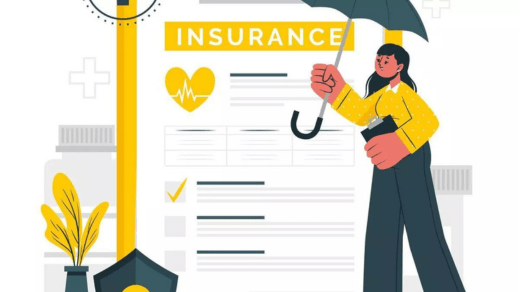Umbrella Insurance: Extra Protection for Peace of Mind
Umbrella insurance is a type of supplementary insurance that provides additional coverage beyond what standard insurance policies offer. Here are 30 points discussing the pros and cons of umbrella insurance and its significance in providing extra protection and peace of mind:
Pros:
- Extended Liability Coverage: Umbrella insurance extends liability coverage beyond the limits of your primary insurance policies.
- Protection Against Lawsuits: It provides protection in case of lawsuits, covering legal expenses and settlements.
- Versatile Coverage: Umbrella insurance can cover various aspects of your life, including home, auto, and personal liability.
- Cost-Effective: It’s cost-effective compared to increasing coverage limits on individual policies.
- High Coverage Limits: Umbrella policies offer substantial coverage limits, providing peace of mind.
- Broad Coverage: It covers a wide range of incidents, including accidents, property damage, and personal injury.
- Worldwide Coverage: Umbrella insurance often provides coverage worldwide.
- Asset Protection: It safeguards your assets, including savings, investments, and property.
- Protection for Future Earnings: It ensures protection for future earnings in case of a major liability claim.
- Comprehensive Coverage: Umbrella policies can include coverage for libel, slander, and defamation.
- Defense Costs: It covers legal defense costs, even if you are found not liable in a lawsuit.
- Coverage for Underinsured Motorists: It provides coverage if you are involved in an accident with an underinsured or uninsured driver.
- Rental Property Coverage: Umbrella insurance can extend to rental properties you own.
- Liability in Your Home: It covers personal liability claims that occur within your home.
- Multiple-Policy Discounts: Some insurers offer discounts when you bundle umbrella insurance with other policies.
- Peace of Mind: Umbrella insurance provides peace of mind knowing you have extra protection.
- Tailored Coverage: Policies can be customized to suit your specific needs and circumstances.
- No-Fault Coverage: Umbrella insurance can provide coverage in situations where you are not at fault.
- Legal Support: It offers legal support and resources in case of a lawsuit.
- Flexibility: Umbrella policies are flexible and can be adapted to your changing lifestyle.
- Protection for Pets: It can provide coverage for personal liability related to pet incidents.
- Coverage for Volunteers: It often covers volunteer activities, such as serving on a board.
- Travel Protection: Umbrella insurance extends coverage for incidents that occur during travel.
- Protection from Liability Claims: It safeguards you from costly liability claims.
- Coverage for Personal Injury: It includes coverage for personal injury claims.
- Protection for Recreational Activities: Umbrella insurance can cover recreational activities like boating and skiing.
- Liability from Social Media: It provides coverage for liability related to social media activities.
- Coverage for Special Occasions: It can offer coverage for events you host, such as weddings.
- Supplemental Business Coverage: Some umbrella policies offer supplementary business coverage.
- Coverage for Gaps: It fills gaps in primary policies, ensuring comprehensive protection.
Cons:
- Additional Cost: Umbrella insurance requires an additional premium, increasing insurance expenses.
- Not a Standalone Policy: It cannot be purchased as a standalone policy and requires underlying primary insurance.
- Complexity: Understanding the interaction between primary and umbrella policies can be complex.
- Coverage Limits: Umbrella insurance has limits, and if those are exceeded, you may still be liable for the remaining costs.
- Coverage Requirements: Insurers may require specific coverage levels on underlying policies.
- Risk Assessment: Higher-risk individuals may pay higher premiums for umbrella insurance.
- Policy Exclusions: Some umbrella policies may have exclusions for certain types of incidents.
- Claim Denials: Like other insurance policies, umbrella policies may deny claims for various reasons.
- Policy Cancellation: Insurers may cancel your umbrella policy under certain conditions.
- Legal Complexity: Legal proceedings related to liability claims can be complex and time-consuming.
- Variable Costs: Premiums for umbrella insurance can vary significantly based on individual circumstances.
- Minimum Requirements: You may need to meet minimum coverage requirements on primary policies.
- Maintenance of Primary Policies: Maintaining primary policies is essential to keep umbrella coverage in effect.
- Understanding Deductibles: Understanding how deductibles interact between primary and umbrella policies can be challenging.
- Privacy Concerns: Sharing personal information with insurers is necessary but can raise privacy concerns.
- Lack of Control: Policyholders have limited control over the claims process.
- Ethical Concerns: Some insurers may have investments or partnerships that raise ethical questions.
- Environmental Impact: The insurance industry’s investments can impact the environment.
In summary, umbrella insurance provides valuable extra protection and peace of mind for individuals and families. While it comes with additional costs and complexities, the benefits of extended liability coverage, asset protection, and comprehensive protection make it an essential consideration for responsible financial planning. Understanding the interaction between primary and umbrella policies, assessing individual needs, and seeking professional advice are crucial steps in making informed decisions about umbrella insurance.

